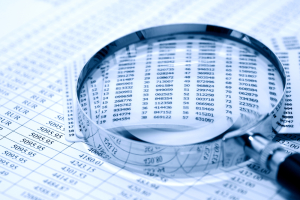
MANILA — Continued decline of debt burden, institution of fiscal and administrative reforms and strong private investments continue to back the Philippines’ resiliency, Moody’s said in its recent credit opinion on the country.
The debt watcher, which currently gives the country an investment grade rating of Baa2, said macroeconomic stability, well-managed inflation, strong external payment position and stable and resilient banking system continue to boost the country’s credit standing.
It explained that drop in the country’s debt burden alongside the structural improvements in fiscal management remain the strong wall of the country.
It cited the recent revenue reforms in the Bureau of Customs (BOC) as among the factors that help increase government collections, which in turn has moved pass the nominal output of the country for the fourth consecutive year.
In the first four months of the year, government revenues rose by nine percent to Php 679.6 billion against year-ago’s Php 622.9 billion.
Expenditure is generally on the uptrend with the expansion in the first four months of the year at five percent to Php 660.6 billion from Php 626.1 billion same period in 2014.
This brought the year-to-date budget gap to Php 19.1 billion, a turn-around from the Php 3.3 billion deficit same period last year.
Moody’s said revenues continue to improve also through budgetary transparency making the country’s fiscal deficit “narrower than rating peers.”
It said sustainability of higher growth has a big change for the Philippines compared to its peers due to resilient private investment and remittances from Filipinos abroad, with the latter being the main factor for strong private consumption.
“Moreover, the government’s revenue base is not dependent on commodity-based receipts,” it said.
Moody’s said the “lower global commodity prices are likely to boost growth through disinflation, in contrast to weaker growth prospects for a number of the Philippines’ more commodity-dependent rating peers.”
It also said the country has been showing resiliency to global shocks limiting the latter’s impact on the government’s fiscal and economic performance.
The country is also expected to benefit from the low oil price environment because it will keep inflation at bay.
The strong current account surplus of the country is also seen to further solidify its resiliency and prevent big impact from shifts on global liquidity conditions vis-a-vis the looming normalization of US’ interest rates.
“Ample onshore liquidity conditions provide a stable funding base for the government, which simultaneously faces lower borrowing requirements due to narrower deficits,” it said.
It noted that the good governance bid of the government helped improve the country’s institutional strength as shown by cross-country surveys.
“At the same time, the central bank has continued to bolster its strong track record of maintaining price and financial stability, contributing to favorable operating conditions for the country’s banking system, currently the only system deemed by Moody’s to have a positive outlook,” it said.
However, the debt watcher said the country’s seven to eight percent target for 2015-16 is “ambitious” and “may be difficult to achieve in the absence of more effective budget execution.
In the first quarter of the year, growth, as measured by gross domestic product (GDP), slowed to 5.2 percent after recovering in the previous quarter to 6.6 percent due to lower government spending and weakness in exports.
Economic managers are optimistic that growth would be faster in the remaining quarters of the year on back of the implementation of various infrastructure projects such as those in Yolanda-affected areas as well as those programmed for 2014 but was delayed because of more stringent bidding rules and low absorptive capacity of line agencies.
Another weakness of the country is its low revenue mobilization, the Moody’s report said.
“Moreover, the main challenge facing Philippine policymakers is sustaining the positive trajectory of institutional quality through the political cycle,” it added.